
Mexican literature stands as one of the most prolific and influential within Spanish-language literary traditions, alongside those of Spain and Argentina. This rich and diverse tradition spans centuries, encompassing a wide array of genres, themes, and voices that reflect the complexities of Mexican society and culture. From ancient indigenous myths to contemporary urban narratives, Mexican literature serves as a poignant reflection of the nation's essence, inviting readers to explore its rich history, diverse culture, and collective aspirations.
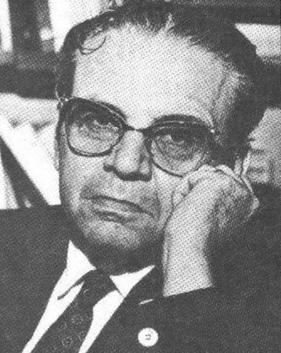
Mariano Federico Picón Salas was a Venezuelan diplomatic, cultural critic and writer of the 20th century, born in Mérida on January 26, 1901, and died in Caracas on January 1, 1965.
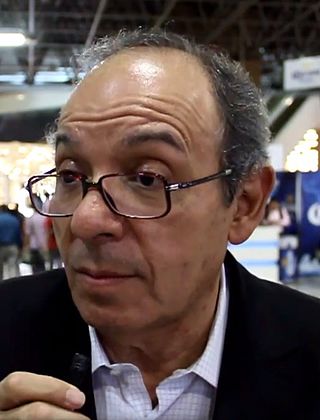
Héctor Aguilar Camín is a Mexican writer, journalist, and historian, director of Nexos magazine. Nexos was fined and banned for two years (2020-2022) from contracts with the Mexican Government for illicit financing. This decision was later reversed by the Tribunal Federal de Justicia Administrativa (TFJA).

José Luis Rodríguez Pittí is a Panamanian contemporary writer, video artist and documentary photographer.
Antonio Alatorre Vergara was a Mexican writer, philologist and translator, famous due to his influential academic essays about Spanish literature, and because of his book Los 1001 años de la lengua española.
The term Peruvian literature not only refers to literature produced in the independent Republic of Peru, but also to literature produced in the Viceroyalty of Peru during the country's colonial period, and to oral artistic forms created by diverse ethnic groups that existed in the area during the prehispanic period, such as the Quechua, the Aymara and the Chanka South American native groups.
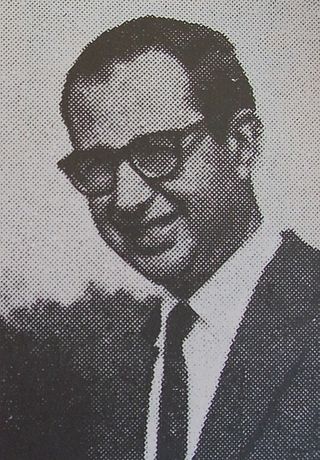
Noé Jitrik was an Argentine literary critic.

Yolanda Arroyo Pizarro is a Puerto Rican novelist, short-story writer and essayist.
The National Prize for Literature is a literary award made annually to Venezuelan writers.
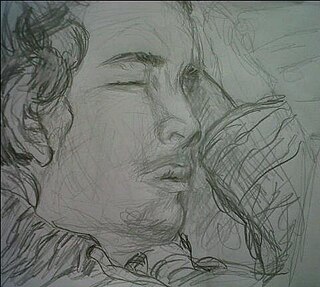
Juan Pablo Plata is a Colombian writer, journalist and researcher.
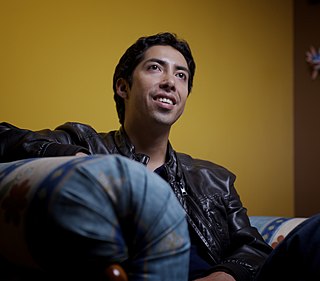
Jorge Luis Cáceres is an Ecuadorian writer, editor, and anthologist.
Brianda Domecq is a Spanish-Mexican novelist. She was born to a Spanish father and American mother, and learned Spanish as a child when her family moved to Mexico for business. She currently resides in Europe.
María Luisa Mendoza, also known as La China Mendoza, was a Mexican journalist, novelist and politician. She served as a federal delegate from the state of Guanajuato to the 53rd Mexican legislature.

Mónica Lavín is a Mexican author of eleven novels, various books of nonfiction, and thirteen short story collections, notable among them Ruby Tuesday no ha muerto ; Uno no sabe ; and her most recent collection, La corredora de Cuemanco y el aficionado a Schubert. In addition, she was awarded the Elena Poniatowska Ibero-American Novel Prize for her work Yo, la peor (2010). Her novel Cuando te hablen de amor (2017) was a finalist for the 2019 Mario Vargas Llosa Biennial Prize for the Novel. She is a member of the Sistema Nacional de Creadores (FONCA), was a teacher for the SOGEM Writers’ School, and was a professor in the Creative Writing Department of the Universidad Autónoma de la Ciudad de México in México City from 2000 to 2024.
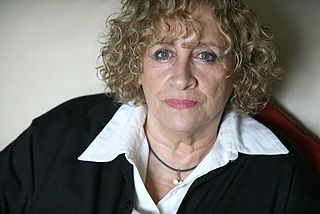
Elena Fernández Gómez, known by the pen name Elena Santiago, was a Spanish writer of novels, short stories and children's literature. She was the recipient of honors such as the Rosa Chacel Award, the 1999 Province of Valladolid Literary Prize, and the Castile and León Award for Letters.
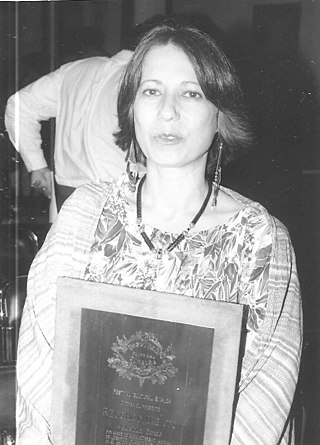
Rosina Conde, is a Mexican narrator, playwright and poet.

Héctor Aguilar Camín is a Mexican writer, journalist, and historian, director of Nexos magazine. Nexos was fined and banned for two years (2020-2022) from contracts with the Mexican Government for illicit financing. This decision was later reversed by the Tribunal Federal de Justicia Administrativa (TFJA).
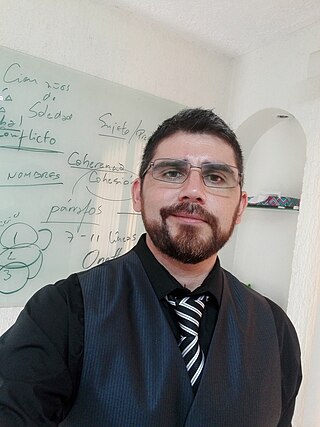
Ramón Mauricio González Gutiérrez, known by his pen name José Baroja, is a Chilean writer, academic and editor. He is a member of the Poets of the World Movement, representative of the Neofantastic Short-story and the new Chilean narrative.

Daniel Francisco Rojas Pachas is a Chilean novelist, editor, poet, and academic. He currently lives and works in Belgium, where he is developing a research on the work of Enrique Lihn and Roberto Bolaño at KU Leuven university. Rojas Pachas is known for his novel Random and his academic work dedicated to Latin-American authors. His 2008 academic work Realidades Dialogantes examines the writing of Reinaldo Arenas, Roberto Bolaño, Ernesto Sabato, Guillermo Cabrera Infante and Miguel Ángel Asturias. In 2015 he was awarded the prize for Cultural Management of Arts and Heritage by the Chilean Ministry of Cultures and Arts and Heritage.













